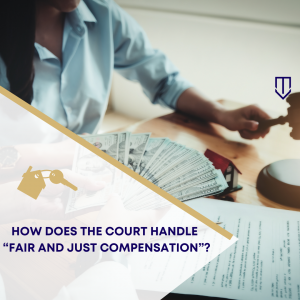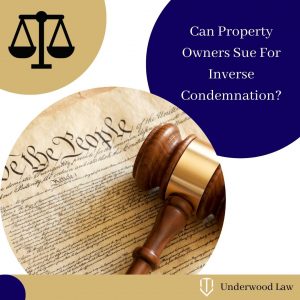
Yes. But it is a complex affair. Eminent Domain proceedings take on a unique structure with expert testimony as the backbone for the determination of fair market value. Neither side of the litigation has the burden of proof on this issue of just compensation, and unlike the traditional civil court case, the Defendant presents their evidence first. (Code. Civ. Proc. § 1260.210.)
Additionally, judges will often place limits on what a homeowner may testify to and can screen the witness beforehand to ensure that they’ll be employing a valid methodology on the stand. Taken as a whole, the process can be quite daunting to the layperson. This post will therefore look at the common issues and questions which arise regarding testimony in eminent domain.
 California Partition Law Blog
California Partition Law Blog


